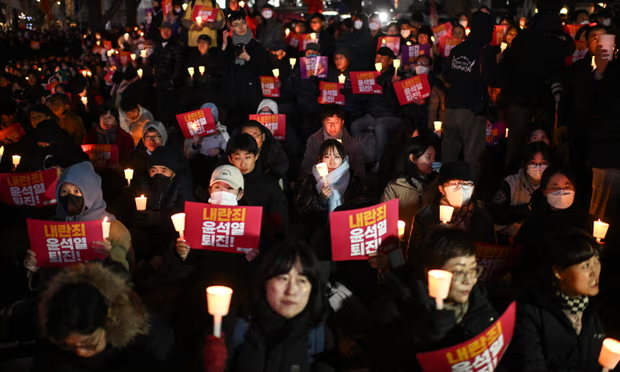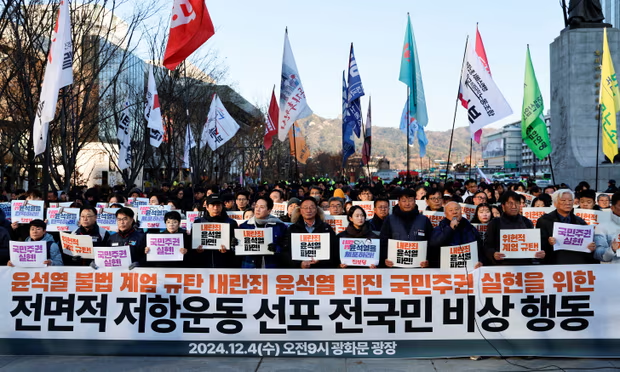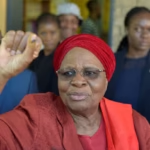
South Korean President Yoon Suk Yeol is facing potential impeachment following his unexpected attempt to impose martial law, which has sparked widespread political turmoil. On Wednesday, opposition parties, including the main Democratic Party, submitted an impeachment motion, arguing that Yoon’s actions were a serious constitutional violation. The opposition intends to vote on the motion as early as Friday.
Yoon’s martial law declaration, which would have marked the first such imposition in over forty years, was met with protests and condemnation across the political spectrum. The Democratic Party accused Yoon of rebellion, stating that his decision lacked legal grounds and was a clear breach of the constitution.
As the political crisis unfolds, Defence Minister Kim Yong-hyun resigned, while also facing potential impeachment. If Yoon accepts the resignation before a parliamentary vote, Kim will be exempt from the impeachment process.
The martial law attempt has drawn international concern, especially from the United States, which has a significant military presence in South Korea. The crisis has raised serious questions about the future of Yoon’s presidency.
What happens if Yoon is impeached?
Impeaching President Yoon Suk Yeol would require the backing of 200 members from South Korea’s 300-seat National Assembly. The Democratic Party, along with several smaller opposition parties, currently holds 192 seats. However, Yoon’s martial law declaration was rejected in a decisive 190-0 vote, with 18 lawmakers from his own ruling People Power Party (PPP) joining the opposition. Notably, PPP leader Han Dong-hun and Seoul Mayor Oh Se-hoon, both party members, voiced criticism of Yoon’s martial law declaration.
Cho Jinman, a professor at Seoul’s Duksung Women’s University, believes it is highly likely that lawmakers will support President Yoon Suk Yeol’s impeachment, especially after members of his own ruling People Power Party (PPP) voted against his martial law declaration.
If Yoon is impeached, he will be stripped of his presidential powers until the Constitutional Court issues a ruling. In the interim, Prime Minister Han Duck-soo, the country’s second-highest official, would assume presidential duties. Han has urged patience and called on Cabinet members to continue fulfilling their responsibilities during this uncertain period.
The Constitutional Court, which currently has only six sitting justices due to three retirements, must unanimously approve Yoon’s impeachment for it to succeed. The Democratic Party plans to expedite the process of recommending two of the three new justices appointed after Yoon took office.
Yoon’s martial law declaration, the first in over 40 years, evoked memories of South Korea’s military-backed governments, when martial law was occasionally declared to suppress anti-government protests. Such scenes of military intervention had not been seen since South Korea became a democracy in the late 1980s, until Tuesday night.



